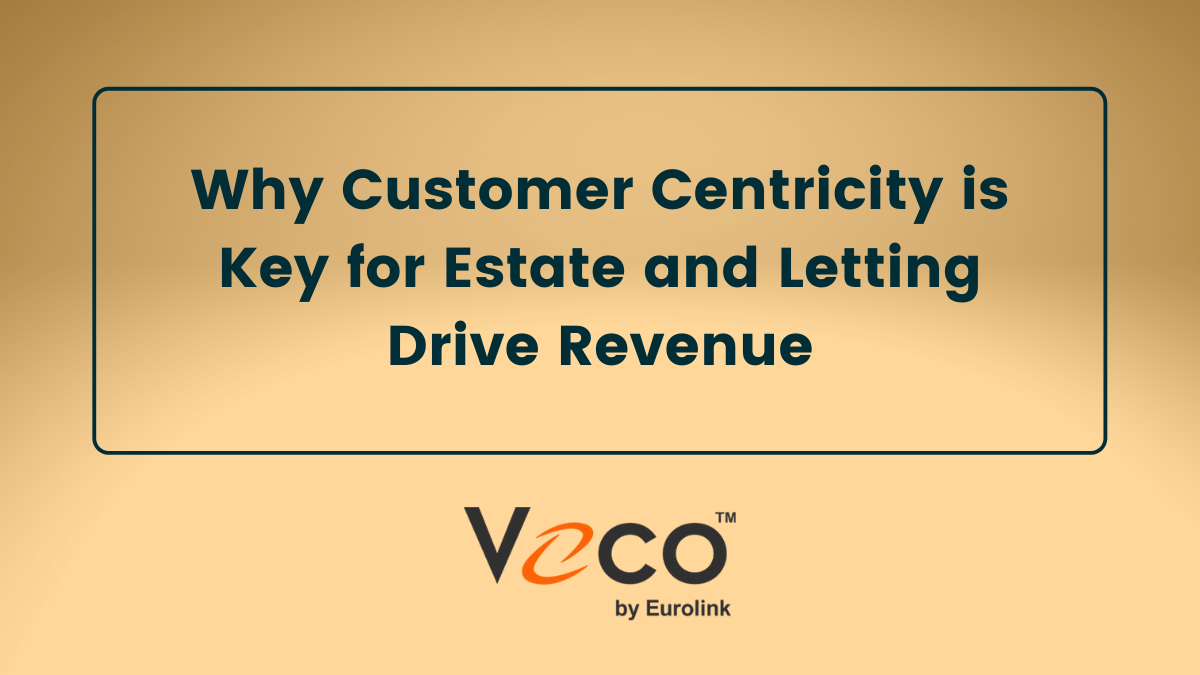Blog by Richard Murray, CEO of Veco™
According to the Harvard Business Review, the greatest barrier to customer centricity is the lack of a customer-centric organisational culture. A company must have leaders who deliberately cultivate the necessary mindset and values in their employees.
Being customer-centric means putting the customer at the heart of everything you do as a business, from marketing to sales to customer service touchpoints across every channel. If agents adopt a customer-centric mindset, their customers will have a richer and more enjoyable engagement with them. Today, consumers have a greater choice and higher expectations, so agents have to work harder to attract and retain vendors, landlords and tenants.
Customer-centric organisations prioritise client satisfaction because they know that happy buyers are the secret to long-term success. Positive reviews aren’t just an edge against the competition – they’re necessary for measuring success as a brand.
Digital-savvy brands are focusing heavily on customer-centric marketing and the customer experience, especially with e-commerce sales increasing in the wake of COVID-19. Traditional companies that want to compete need to focus on customer-centricity with the same energy - after all, today’s customers expect to be catered for and valued.
Recent research from HubSpot shows that more than 80% of companies who prioritise customer experience are reporting an increase in revenue. Customers will spend 17% more for a good experience and customer-centric companies are 60% more profitable than companies that aren’t. Furthermore, 76% of customers expect companies to understand their needs.
One of the critical skills involved in customer centricity is understanding the customer. The customer is constantly evolving, therefore the efforts to understand your customer need to be dynamic and ongoing. Technology, such as ‘voice of the customer’ platforms can play an effective role in capturing insight and innovation from customers.
An example of great customer-centricity is Octopus Group, a UK-based business focussed on the financial services and energy sector, which has sought to put customers at the centre of their business.
During the early stages of the pandemic, Octopus Energy worked with the UK government to create a uniform approach to helping those struggling to pay their energy bills. Simon Rogerson, a co-founder wrote a personal blog about their work during the pandemic and how they were striving to keep the balance between helping consumers in need and ensuring the business kept running for their employees.
This customer-centric, transparent and people-first approach meant that not only did the company help its end users during a difficult time, but also provided Octopus Energy with a driver for innovative growth. Octopus Energy has become the UK’s latest ‘tech unicorn’, employing 1,000 new tech recruits whose job will be to further develop smart grid technologies that can help the UK’s transport and heating systems harness cheap renewable energy for consumers.
If agents want their employees to ‘think customer’, they need to be open and transparent with and share insights into the customer experience. Sharing feedback with your employees is a really effective way of building customer empathy and engaging your employees to deliver a great customer experience.
In my fairly unique position of being both landlord and supplier, I have experienced the combination of automated alerts, updates, reports and portal access we provide as a supplier, and when supported by good people, service levels boost from satisfactory to exceptional. As a vendor, portal access to performance and activity statistics is a great reassurance, especially when it might otherwise appear to have gone quiet. Alerting a vendor to activity and driving them to the stats reaffirms an agency’s full service value.
Technology and particularly, proptech exists to support agents in a ‘people business’, but this extends to their customers. If agents are well supported by technology, then the customer will experience a ‘best in class’ personal service. Automation gives agents supporting processes to put the customer at the centre of all communications, and ensure that they are not only reliant on their points of contact.
Visit the Veco landing page on Kerfuffle for more information and to see reviews



